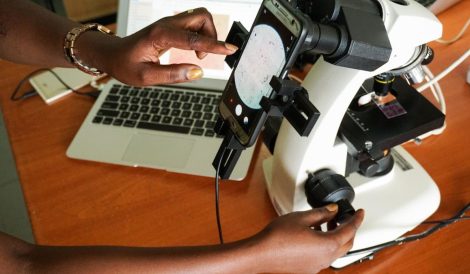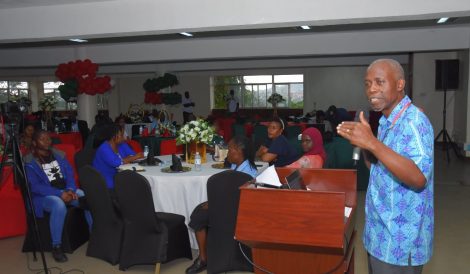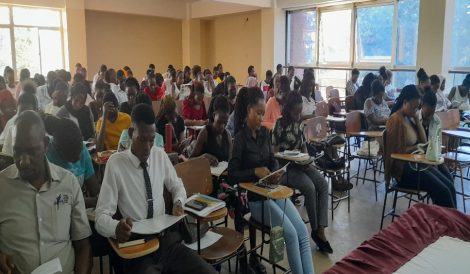The MIT (Masters in Information Technology) Carnegie supported Programme has been visiting Makerere University every month of June for the last five years. The programme was made to build capacity within sub-Saharan African countries to empower the next generation of Library and Information professionals. With this knowledge and skills that apply modern Information Communication and Technology (ICT), they will be able to support Academics and research in Africa.
The Principal, Assoc. Prof. Constant Okello Obura opened the workshop and welcomed all the participants to Uganda and Makerere University. The Principal advised them to be keen and not be tricked when shopping with an inflated currency and assured them of the political peace within the country. He further encouraged them to focus on what is important, cooperate with supervisors and try their best to complete their course within three years.
Some of the presentations made by the Masters students included: Digitizing Collection of Data for Buganda Kingdom presented by Patrick Sekikome, Digitizing University of Ghana Library Systems, presented by Kwesi Sewe, Designing a Repository Service for University of Bagamoyo, Tanzania, presented by Pantaleo Masawe. How Libraries can use Mobile Technology to provide Agricultural Information, presented by Fredric from University of Venda, Zimbambwe.
Applications are accepted only from Carnegie partner institutions and countries. These include; South Africa, Uganda, Nigeria, Tanzania and Ghana. However, anyone may apply for this course, considering that all fees should be paid by the student or the university. Twenty prospective students are selected every year for admission into the fully funded programme in addition to possible non-funded students. Selection is based on previous education, work experience and the strength of submitted portfolios.
Applicants must meet the basic requirements which include; at least an Honors degree in Library and Information Sciences, a Masters in Library and Information Science degree or equivalent degree from a reputable University; younger than 45 years of age, past academic performance; proficiency in English; work experience; current job description and responsibilities; a recommendation letter from the current employer and commitment from the current employer that they will make time available for the employee to focus on his/her studies, including visits to the University of Pretoria.



